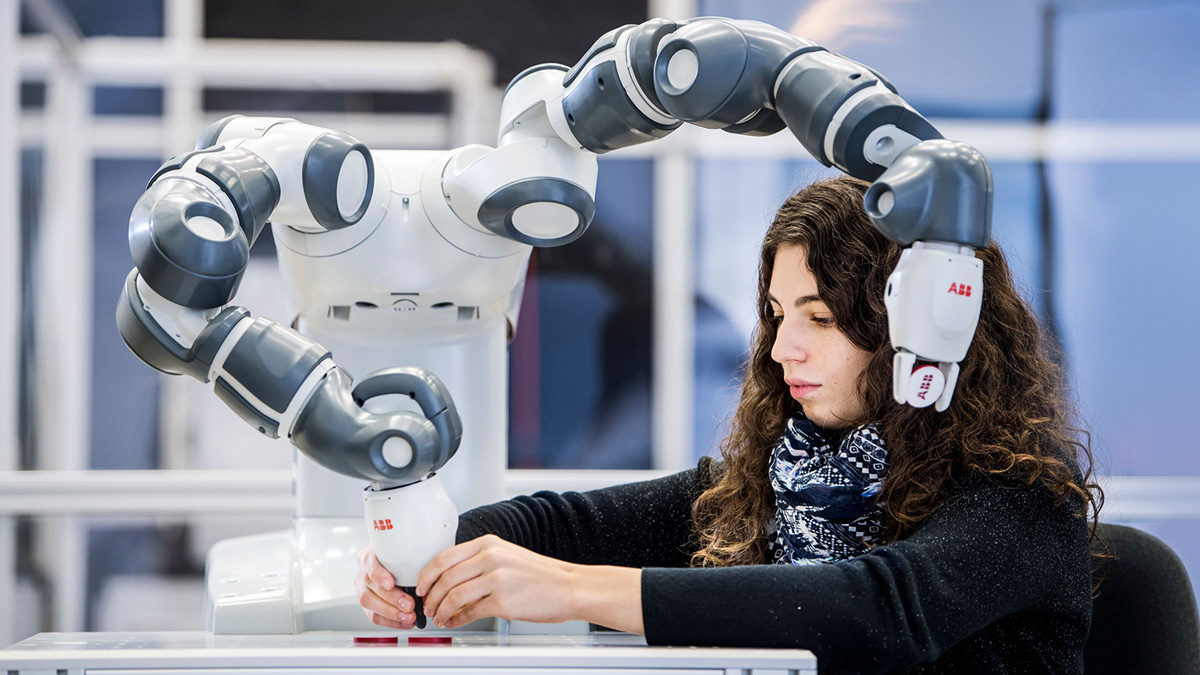Driven to Divide: Insights & Perspectives
Exploring the forces and ideas that shape our divided world.
Are Robots the New Pets We Never Knew We Needed?
Discover how robots are transforming our lives as the pets we didn't know we needed! Explore companionship, fun, and future trends!
Exploring the Future: How Robots Are Becoming Our Companions
The future is here, and as technology advances, robots are increasingly becoming our companions. From household chores to assisting the elderly, robots are designed to enhance our daily lives. Companies like Robots.com are developing intelligent machines capable of understanding human emotions and responding in a way that fosters companionship. These advancements are not only transforming the way we interact with technology but are also paving the way for robots to become trusted allies in various facets of life.
One notable example of this trend is the rise of social robots, like Moxie and Ava, specifically designed to engage in communication and provide emotional support. These robots utilize artificial intelligence to learn and adapt to individual preferences, thereby creating more meaningful interactions. As we continue to explore the integration of robots into our daily lives, the potential for them to serve as companions will reshape our understanding of relationships and companionship in the digital age.

The Rise of Robot Pets: A Look at Their Benefits and Drawbacks
The advent of technology has ushered in a new era of companionship with the rise of robot pets. These innovative creations offer numerous benefits for individuals who may not be able to care for a traditional pet. For instance, robot pets can provide emotional support without the responsibilities of feeding, grooming, or regular veterinary check-ups. Moreover, they can serve therapeutic roles, assisting those suffering from loneliness or mental health issues. As a result, they have gained popularity in settings like nursing homes and for children with autism, where they can help foster social interactions.
However, the rise of robot pets does come with its drawbacks. Critics argue that these mechanical companions cannot replace the emotional bond formed with living animals. The lack of genuine affection, unpredictability, and interaction found in biological pets presents a significant limitation. Additionally, concerns about data privacy arise, as many robot pets are equipped with sensors and connect to the internet, leading to potential misuse of personal information. Ultimately, while robot pets can enhance quality of life for some, it is crucial to weigh their limitations against the unique benefits provided by traditional pets.
Are Robot Pets the Solution to Loneliness in the Modern World?
As our world becomes increasingly connected through technology, many individuals find themselves experiencing profound feelings of loneliness. Robot pets may offer a unique solution to this growing issue, providing companionship and emotional support without the responsibilities that come with traditional pet ownership. These innovative devices, such as the Lovot and Jibo, are designed to interact with their owners in ways that mimic real animal behaviors, fostering a sense of attachment and happiness. As studies have shown, having a pet—even a robotic one—can help reduce stress, anxiety, and feelings of isolation, suggesting that robot pets might effectively combat loneliness in our modern age.
Moreover, the impact of robot pets extends beyond mere companionship. They serve as reminders for social interaction, encouraging users to engage with the world around them. For example, many robotic pets come equipped with smart technology that can connect to social platforms, helping users communicate and share experiences with friends and family. Additionally, a study published by Frontiers in Psychology indicates that interacting with robotic companions can stimulate emotional responses similar to those elicited by real pets. Ultimately, while robot pets may not replace human relationships, they can enhance our lives by offering companionship and reducing feelings of loneliness.